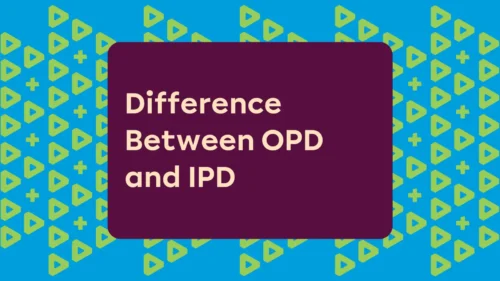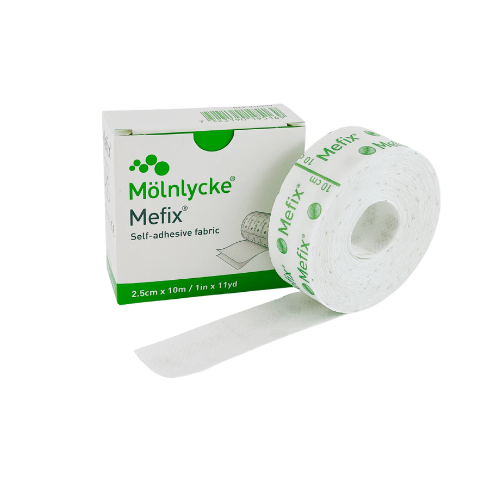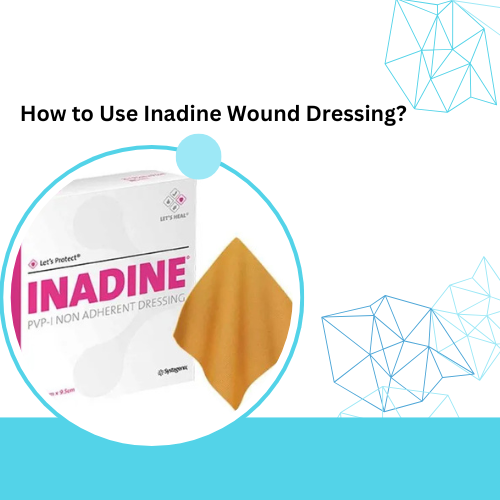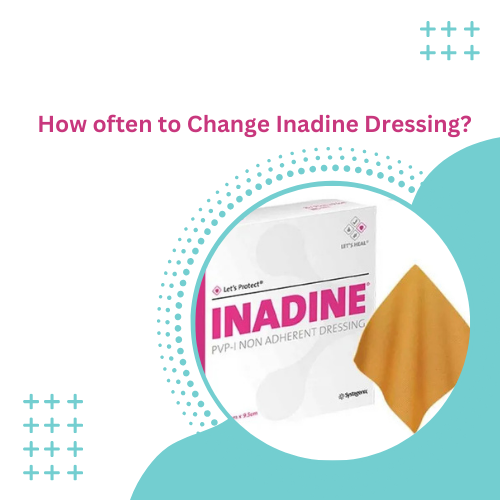Are you confused about the differences between OPD (Outpatient Department) and IPD (Inpatient Department) treatments? It’s a common question, especially when navigating healthcare decisions. In simple terms, OPD refers to when you visit a doctor or clinic for treatment and return home the same day, without needing an overnight stay. IPD, on the other hand, involves being admitted to a hospital for serious conditions that require extended care and overnight stays.
This article explains the key differences between these two types of medical care, including the nature of treatment, duration of stay, costs involved, and insurance coverage. Understanding the distinction between OPD and IPD will help you make informed healthcare choices, whether you’re dealing with minor ailments or more severe health issues.
What is OPD (Out-Patient Department)?
OPD refers to medical care where patients receive treatment without being admitted to a hospital. This model includes consultations, diagnostic tests, or minor procedures, after which the patient can return home the same day. OPD services usually cover preventive care, diagnosis, and follow-up treatments.
Examples of OPD Services:
- Routine check-ups
- Specialist consultations
- Diagnostic tests (X-rays, blood tests)
- Minor surgical procedures that don’t require hospitalization
OPD treatment is typically recommended for chronic conditions that need regular monitoring or routine evaluations, without the necessity of an overnight hospital stay.
What is IPD (In-Patient Department)?
IPD refers to treatment that requires a patient to be admitted to a hospital for more intensive care. In the IPD, patients are given comprehensive medical support, including 24-hour monitoring and access to necessary medical equipment and healthcare professionals. This type of care is essential for more serious health issues.
Examples of IPD Services:
- Major surgeries (appendectomy, heart surgery)
- Intensive care after surgery
- Treatment for severe conditions (pneumonia, heart attacks)
- Childbirth and postnatal care
IPD treatment ensures that patients receive continuous supervision and medical attention for serious health conditions.
Key Differences Between OPD and IPD
1. Duration of Stay
- OPD: Patients receive treatment and leave the healthcare facility within a few hours.
- IPD: Patients are admitted to the hospital and may stay for days or weeks, depending on their condition.
2. Type of Treatment
- OPD: Typically involves non-critical, scheduled treatments such as consultations, diagnostics, and minor procedures.
- IPD: Reserved for more complex treatments, surgeries, or conditions that require constant medical supervision.
3. Cost Implications
- OPD: Generally less expensive since it does not involve overnight stays. Some health insurance plans cover OPD costs for consultations and diagnostic tests.
- IPD: More expensive due to the costs associated with hospitalization, surgeries, and extended care.
4. Insurance Coverage
- OPD in Health Insurance: Some insurance policies cover outpatient services like consultations and tests, often with specific spending limits.
- IPD in Health Insurance: Typically covers hospitalization costs such as bed charges, surgery fees, and medications. Policies for inpatient services tend to have higher premiums due to the potential for large medical expenses.
Importance of Health Insurance with OPD and IPD Coverage
1. OPD Health Insurance Benefits
Health insurance policies with OPD benefits allow policyholders to manage routine medical expenses for consultations, diagnostic tests, and preventive check-ups without requiring hospitalization. These are particularly useful for individuals who need frequent medical attention.
2. IPD Health Insurance Coverage
IPD-focused policies provide comprehensive protection against severe illnesses or medical emergencies that require hospitalization. These policies usually cover pre-existing conditions and specific illnesses, ensuring the necessary financial support during extended hospital stays.
3. Choosing Medical Insurance for Senior Citizens
Senior citizens often have chronic health conditions that require regular check-ups and routine monitoring. Comprehensive plans covering both OPD and IPD services are ideal for ensuring their healthcare needs are adequately met.
4. Health Insurance for Parents
When selecting health insurance for parents, ensure it covers emergency hospitalizations and regular outpatient visits. This ensures that both preventive care and critical treatment needs are covered.
When to Choose OPD vs. IPD Treatment
When to Choose OPD Treatment
- Routine check-ups with specialists
- Minor health issues like flu or cold symptoms
- Follow-up visits for managing chronic illnesses
Choosing OPD treatment helps save time and money, especially for non-critical conditions that don’t require hospital admission.
When to Choose IPD Treatment
- Life-threatening emergencies (heart attack, stroke)
- Surgical procedures that require recovery time
- Severe conditions needing close monitoring
Opting for IPD ensures that patients receive the continuous care they need for serious health issues.
Cost Implications of OPD vs. IPD
While IPD treatments are typically more expensive, actual costs depend on factors like:
- Type of procedure: Major surgeries and intensive care treatments are costly.
- Hospital: Charges vary based on whether the hospital is public or private, and its location.
- Insurance coverage: Your plan’s level of coverage, deductibles, and co-payments will affect your out-of-pocket costs.
Before undergoing treatment, it’s essential to consult your insurance provider to understand your coverage and potential expenses.
Real-World Examples of OPD and IPD Decisions
- Chronic Condition: A patient with diabetes may frequently use OPD services for regular check-ups but will need IPD treatment if they develop complications.
- Emergency: In cases of a heart attack, immediate IPD treatment is essential.
- Elective Surgery: Patients may have the option to choose between OPD or IPD for certain elective procedures based on their complexity and surgeon’s recommendation.
Conclusion
Understanding the differences between OPD and IPD helps in making smart healthcare decisions. OPD is ideal for minor procedures and routine check-ups, while IPD is necessary for serious conditions requiring hospitalization. When choosing health insurance, it’s important to evaluate whether your plan covers both OPD and IPD treatments.
By carefully assessing your health needs and comparing various insurance options, you can choose a plan that offers comprehensive coverage, ensuring both routine and emergency healthcare services are covered adequately.




